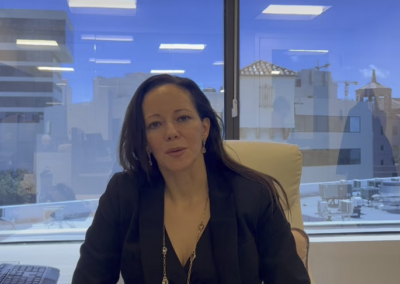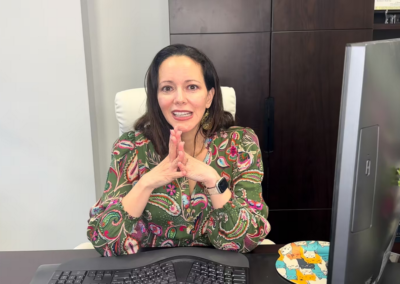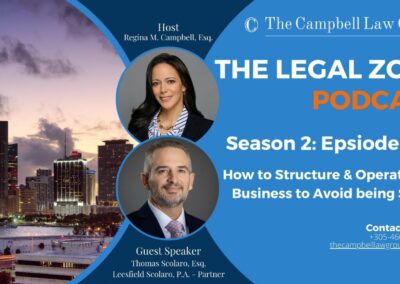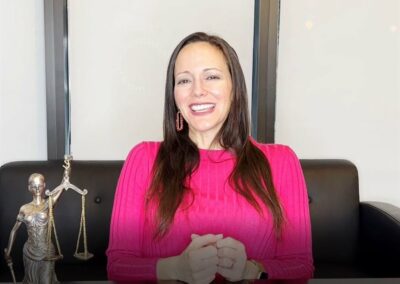Conversion is a highly nuanced and complex legal concept intimately tied to the broader issue of civil theft. In essence, it involves a situation in which an individual wrongfully takes possession of another person’s property, with the explicit intent of using it for personal gain and with no intention of returning it to its rightful owner. This differs from civil theft, where the intention to “steal” the property is usually clear.
Under Florida law, conversion involves three key elements: the wrongful assertion of dominion over someone else’s property in a manner that is inconsistent with the rightful owner’s ownership. This can include situations where the property is taken under a mistaken belief that it belongs to the person taking it.
Despite the similarities between conversion and civil theft, conversion is unique because it does not require proof of intent to take the property, only proof of wrongful taking, depriving, or converting of the property, whether temporarily or permanently. Furthermore, unlike civil theft, conversion does not permit the recovery of treble damages and may require a demand for the return of the property prior to a claim being brought. However, there are exceptions to this rule, with some courts finding that a demand letter is not required where it would be futile.
Overall, conversion is a highly complex and nuanced legal concept that can have significant implications for individuals and businesses alike. Whether you are a victim of conversion or are facing accusations of wrongful taking, it is essential to work with an experienced legal professional who can provide the guidance and support you need to navigate this challenging area of the law.
The Campbell Law Group is a highly specialized legal firm with a proven track record of success in handling complex business litigation cases, including those involving conversion. With extensive experience in litigating conversion cases, the firm thoroughly understands the complexities of Florida’s civil theft statute.
By leveraging this expertise, the firm can provide businesses with strategic counsel and representation tailored to their unique needs, helping them protect their rights and avoid potential legal pitfalls. Whether you are looking to prevent future legal issues or are facing an existing dispute, the Campbell Law Group is well-equipped to provide you with the guidance and support you need to achieve a favorable outcome.
Get the Legal Support You Need for Conversion Litigation with The Campbell Law Group
When it comes to conversion litigation, having a knowledgeable legal team on your side is essential. At The Campbell Law Group, we have years of experience representing clients in civil theft and conversion litigation cases. We understand the importance of determining the full extent of your losses and conducting thorough investigations to build a strong case.
Our goal is to resolve conversion litigation disputes efficiently, and we will strive to settle out of court. However, we have the expertise and resources to handle your case effectively if a trial becomes necessary.
If you’re facing conversion litigation, don’t hesitate to reach out to The Campbell Law Group to schedule an initial consultation. We will listen to your concerns and develop a personalized strategy to help you achieve the best possible outcome for your case.
Frequently Asked Questions
What are the elements of conversion?
The elements of conversion are:
- The plaintiff has a right to possess the property.
- The defendant wrongfully took or used the property.
- The defendant intended to take or use the property.
- The plaintiff was deprived of the property or its use.
- The plaintiff suffered damages as a result.
What damages can be recovered in a Conversion lawsuit?
In a Conversion lawsuit, the plaintiff may be able to recover the value of the wrongfully taken or used property and any damages incurred as a result of the conversion.
How do I prove conversion in court?
To prove conversion in court, the plaintiff must show that they had a right to possess the property, that the defendant wrongfully took or used the property, that the defendant intended to take or use the property, that the plaintiff was deprived of the property or its use, and that the plaintiff suffered damages as a result. The plaintiff may also need to present evidence, such as witness testimony or documentation, to support their claim.
What is the statute of limitations for a conversion lawsuit in Florida?
In Florida, the statute of limitations for a conversion lawsuit is four years from the date of the conversion. This means that you must file your lawsuit within four years of the date that your property was converted.
Can conversion be a criminal offense in Florida?
Yes, conversion can also be a criminal offense in Florida. If someone intentionally takes or uses someone else’s property without permission, they may be charged with theft or other related crimes.
What is conversion in a business context?
In a business context, conversion occurs when one business intentionally interferes with another business’s property rights, such as by taking or using the other business’s property without permission.
Examples of conversion in a business context can include:
- Using a competitor’s trademark or copyright without permission.
- Misappropriating trade secrets or confidential information.
- Wrongfully retaining another business’s assets or property.
How do I prove conversion in a business context?
To prove conversion in a business context, you must show that you had a property interest in the property in question, that the defendant intentionally interfered with your property rights, and that you suffered damages as a result of that interference. You may also need to show that the defendant acted in bad faith or engaged in intentional misconduct.
Can I prevent conversion from happening to my business?
Yes, you can take steps to prevent conversion from happening to your business, such as securing your intellectual property rights through trademarks, copyrights, and patents, using confidentiality and non-disclosure agreements, and implementing security measures to protect your physical and digital assets.















